I remember Terry and June pretty fondly, which may come as a surprise to anybody younger who has only seen it in a modern context and would be perfectly within their rights to look aghast at me and say ‘What? But it’s terrible!’
To be fair, it was the opening titles that I remember the best and it was the anticipation of those that I used to love, more than the fairly rickety scripts. Much like the beginning to the Worzel Gummidge television programme, where I used to be on the edge of my seat wondering whether the hapless scarecrow was going to fall forwards or backwards, in Terry and June the trepidation was with what was going to happen to Terry at the end of the theme music (which was extremely catchy, by the way). Would his sun lounger collapse? Would the parasol fall down on him? Would the series throw a complete curve ball at us and make June’s chair crumple instead? The excitement in our lounge was palpable.
There are some vintage sitcoms where the humour transcends the years and despite a few dated aesthetics - and the occasional wince at some very un-PC jokes - it doesn’t matter that it was first broadcast several decades ago: Fawlty Towers, The Good Life, The Fall and Rise of Reginald Perrin, Steptoe and Son, Open All Hours, Porridge etc. are all still just as funny now as then.
Others don’t make the journey so well and as such are very rarely, if ever, repeated for today’s audience. The BBC’s Terry and June is, unfortunately, one of these. Terry Scott and June Whitfield played the imaginatively renamed Terry and June Medford, a married middle-aged couple who, when we met them in the first episode, were moving into a new house in Purley, south London.
Terry and June was actually the offspring of another vehicle for the two main characters. The pair had starred together in what was really the same show by another name, Happy Ever After, which had been broadcast on BBC1 in 1974, originally as a pilot in the Comedy Playhouse run. They were then called Terry and June Fletcher, but the premise of the show – a middle-class couple living in suburbia after their children had left home – was the same. Five series and three specials at Christmas late, the script writers had run out of ideas and were ready to kill it off. The BBC had other plans for their popular sitcom, however, and brought in a batch of new scribes to give it a fresh lease of life.
Legalities meant that the name had to be altered – and so, after what was obviously a long mental journey, Terry and June began a new existence in October 1979. This time round they had the last name Medford and had only one child, a daughter called Wendy who was very rarely seen but Alan, Terry’s nephew, occasionally turned up to create havoc. Not that Terry needed any help on this score, however: he was brimming with his own foolhardy plans and schemes which never went to plan and generally ended up in disaster, while the enduring June sighed good-naturedly and shook her head at the mess.
An abridged flick through some of the storylines will give you an example of the kind of scrapes that Terry got them into: Terry agrees to play in a bridge tournament on behalf of his company, despite not knowing how the game works. In a practice session with his boss he bangs his head on the card table and uses the accident to pretend he now has amnesia and has forgotten how to play. On another occasion Terry tries to secretly recover his lawnmower from his new neighbour’s shed with the help of Alan. Alan drops a match, sets off some fireworks and the shed catches fire. Or perhaps you’d like the idea of Terry and his wife attempting to play the cow in a company pantomime but inadvertently getting in the back of a lorry and being taken to Wembley instead?
So. Nothing challenging about the comedy but if you liked slightly unconvincing farce you were generally in for a good time. Terry being hit on the head and knocked unconscious was a recurring theme throughout the show’s run.
The real main reason that I, personally, liked Terry and June was that my Nan looked very much like June Whitfield, which led to many repetitive jokes at her expense but the programme did have other redeeming features. This undoubtedly had to be its main cast: the Carry On veteran Scott’s facial contortions were always very watchable and Whitfield (later on to be given a new lease of life as Edina’s mother in Absolutely Fabulous) brought a dignified calm to the proceedings – although she was just as capable of playing it for laughs as Scott when she needed to be. There was also a reliable turn from the chairman of the firm that Terry worked for, Sir Dennis Hodge (played by Reginald Marsh, who I think was contractually obliged to play a grumpy company owner in every role he took on – see The Good Life). Hodge ran PlaySafe Ltd. (a company who made fire extinguishers and the like) with a tight fist and Terry spent a lot of his time trying to impress him. And usually failing.
Other characters included Terry’s immediate boss Malcolm Harris, a philandering man who always argued with his wife - and friend of June - Beattie (Rosemary Frankau, whose mother was Renee Roberts, the marvellous Miss Gatsby in Fawlty Towers and whose son, Sam Bain, is the co-creator and writer of many shows, including Peep Show). Malcolm was played in the first two series by Minder’s Terence Alexander and then for the next five by Tim Barrett - who appeared in Reginald Perrin as business man Mr Campbell-Lewiston – and for the last two series by John Quayle, a Seventies sitcom everyman and who also showed up in Reggie’s life, as Mr Fennell in the last episode of series three.
Terry and June’s annoying next door neighbours often played a part in the plot; notably the Pilbeams (Brian and Tina, played by Roland Curram and Anita Graham) and the Sprys (Tarquin and Melinda, played by Allan Cuthbertson and Joan Benham, then Diana King after Benham’s death). Tarquin and Terry were forever carrying on a game of petty one-upmanship with each other.
There were nine series of Terry and June in all, with seven series of six episodes, the eighth had 12 and the last having seven. Christmas specials followed the second, third, fifth and eighth series.
The last ever episode aired on 31 August 1987 and featured the usual ludicrous Medford confusions: a fete, goldfish, cleaning ladies, baby photographs and an incorrectly overheard conversation about a pregnancy. Just a normal day at 71 Poplar Avenue, Purley, then.




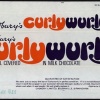
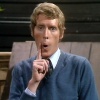
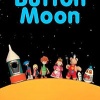

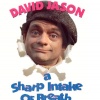
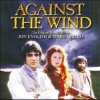
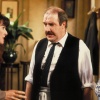

Do You Remember Terry And June?
Do You Remember Terry And June?